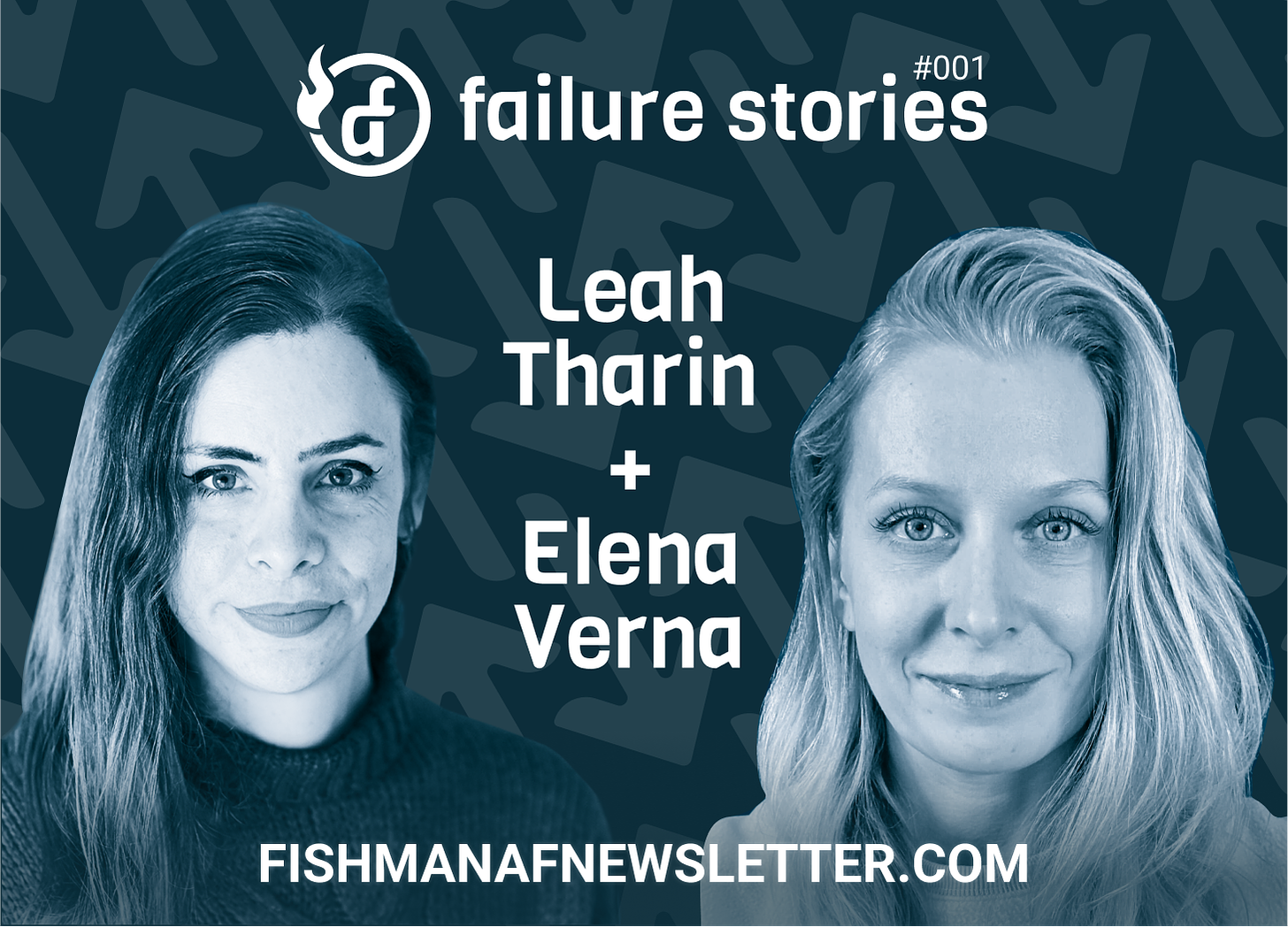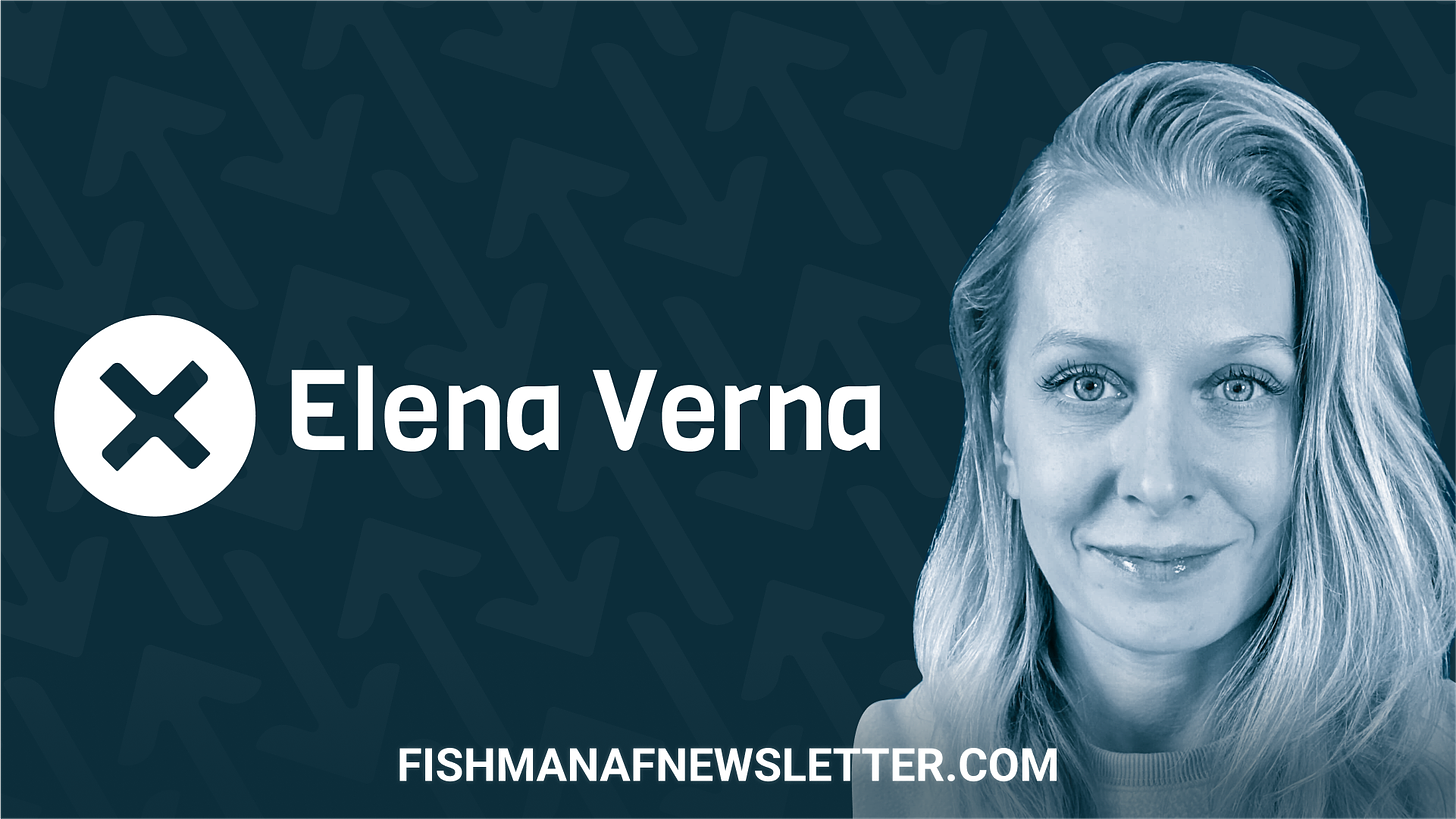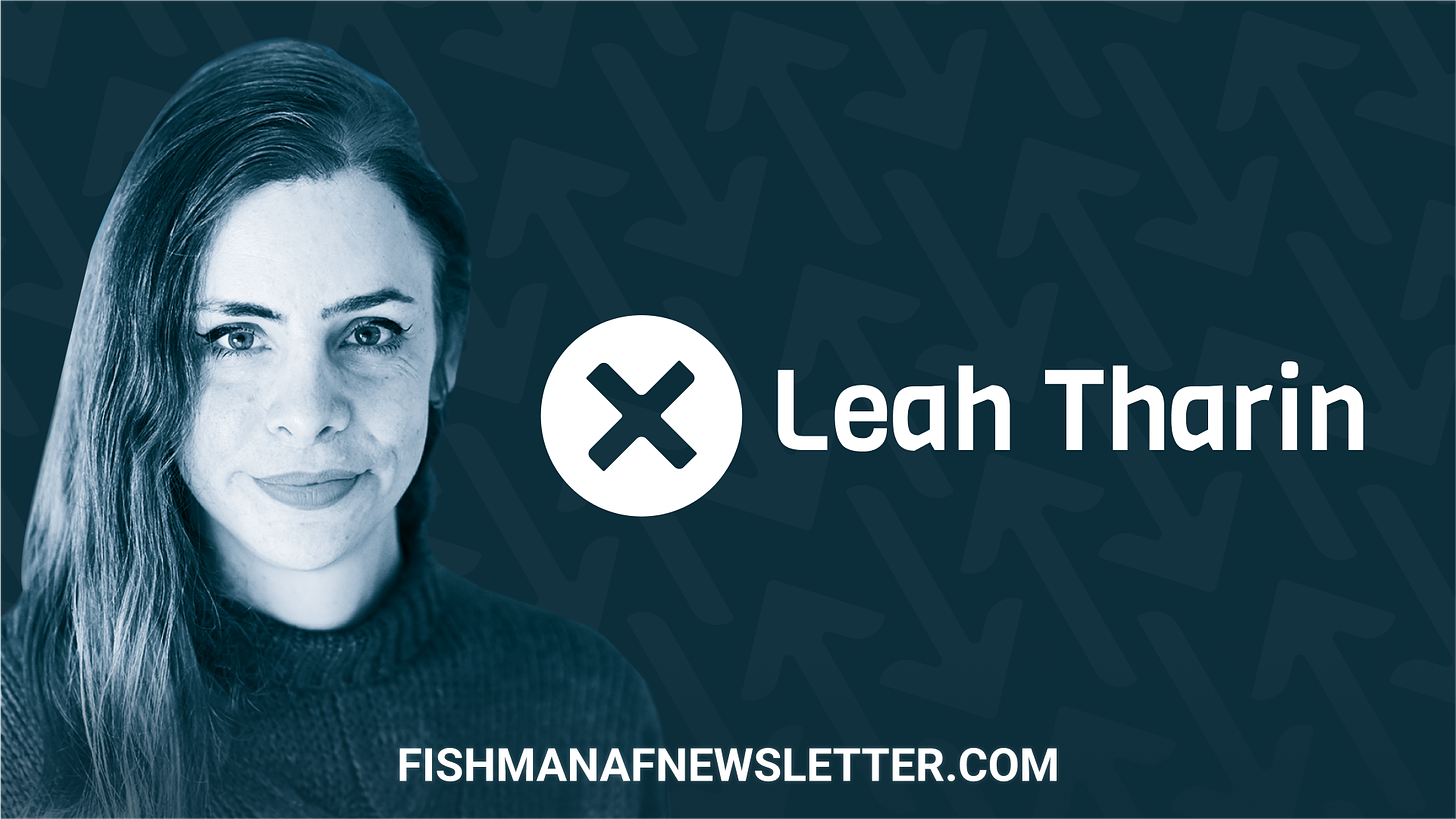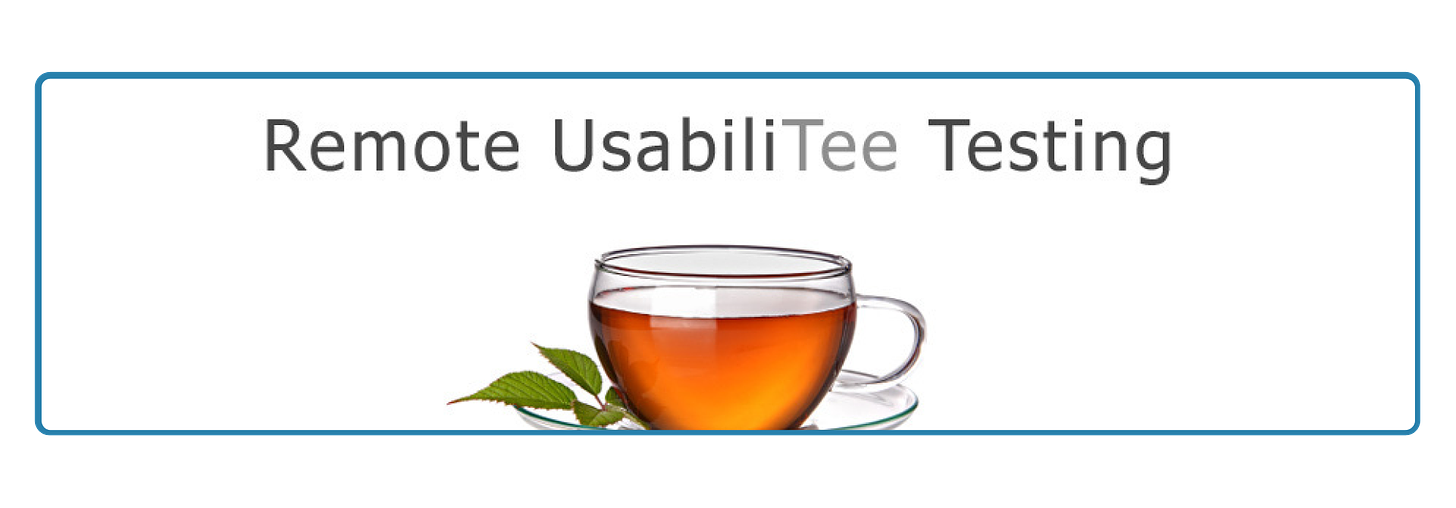Failure Stories Volume 1
Even your PLG heroes get mud on their capes—stories from Elena Verna and Leah Tharin
Hi there, it’s Adam. 🤗 Welcome to my weekly newsletter. I started this newsletter to provide a no-bullshit, guided approach to solving some of the hardest problems for people and companies. That includes Growth, Product, company building and parenting while working. Subscribe and never miss an issue. Questions? Ask them here.
Failure. We’ve all experienced it but hate to talk about it. And why is that? Is it because as leaders we’re supposed to be flawless; impervious to criticism and mistakes? Are we worried that if our teammates, peers, bosses or direct reports find out about some huge flop our ours that we will somehow be less successful than we were a week or two ago?
In Product we prototype because we know that on a great day only 30% of our solutions will actually work. In Growth we experiment for the same reason. Even the smartest and most talented among us get it wrong, have moments of immaturity, and learn some painful lessons.
In baseball you can bat .300 and still make the hall of fame. The best athletes don’t make 100% of their shots, complete 100% of their passes, or win every championship. And yet in our professional lives we expect more.
A career isn’t linear. It’s filled with ups and downs, laughter and crying, and there are days when you feel like everything is going wrong and you can’t get anything right.
The party line is that failure is “OK” because it’s about learning. But, when it comes down to it, is it really okay to fail?
I say yes. And because it’s so hard to stomach I’m introducing a new corner of my newsletter designed to normalize the losses and mistakes that we’ve all experienced but are too afraid to share. The ones that make us deeply uncomfortable and are a big part of what has forged the successful people you follow today. Those whose advice you clip and save for later, whose newsletters you subscribe to, and whose templates you share.
I’ve collected stories from some of the brightest minds in Product, Growth and company-building and I’ll be dropping them throughout this newsletter journey.
I ask each person two questions:
What would you consider to be the biggest professional failure of your career – what’s the story behind it and why was it such a big flop?
How did that experience shape you; how did you transform it into a learning opportunity?
Our first set of stories are from Elena Verna who holds the title of Growth Solopreneur, Meme Queen, Advisor-to-the-stars, and writes a newsletter that has already eclipsed mine in terms of subscribers (not that I keep track or anything; definitely not).
Like some others we’ll hear from - Elena’s first few memorable failures come from “saying the quiet part out loud.” A time when she was a little earlier in her career and didn’t necessarily appreciate the weight that her words carried or that delivery can often matter more than sentiment.
It starts with her first conference presentation:
“During my first conference presentation on monetization strategies, I referred to my company's most expensive plan as a 'decoy' for the cheaper options. In reality, it enhanced the appeal of the middle plan by making it appear less costly.
The following day, my manager and PR representative sternly reprimanded me for devaluing our 'enterprise plan.'
Consequently, I had to agree to have my future presentations reviewed and approved by the company.”
Ouch.
And the kicker.
“Nevertheless, I still believe that the plan served as a 'decoy.'”
Her second story is about meeting etiquette and optics:
“In the early stages of my career, when I was less aware of optics and office politics, I left a meeting I deemed pointless because the organizer hadn't done any pre-reading about the issue.
I bluntly stated, ‘Reschedule after you review the Confluence page on this topic, and then we can talk,’ and walked out. Well the organizer was the Head of Accounting and my unprofessional behavior was reported to HR.
I received a stern warning and had to formally apologize to both the organizer and the other meeting attendees.
It was a truly humiliating experience.”
To cap it off, she shared with me a third set of stories — some rapid-fire micro-mistakes:
“I have too many [micro] failures to count, but I’ve been personally responsible for taking down a data-warehouse with a badly written SQL query (left bad outer join running while in the meeting), bringing down our website with a poorly constructed AB test (hey, how come we haven’t had any sign ups in last 3 hours?), costing a company $100K+ in revenue with a pricing AB test that did not pan out… and many others I buried in my memory (along with tears and wine).”
Tears and wine are definitely two things that go together when it comes to this line of work.
But all is not lost because Elena—who now has held executive roles at SurveyMonkey, MalwareBytes, Miro, Netlify, and Amplitude; along with dozens of advisory roles, four Reforge courses and a board seat—had this takeaway from all these faceplants:
“I wouldn’t change any failure. Each one presented a valuable learning opportunity, and I am who I am today due to every failure I've encountered in the past.”
What I’ve learned from working closely with Elena is that she treats these failures like a failed experiment – an opportunity to iterate, improve, and try something new. Thank you for sharing these stories with us!
My second set of stories is from Leah Tharin (Lay-uh, not Lee-uh). I first met Leah in the comment section of Elena’s LinkedIn posts and thought: “Who is this person who comments on every. single. post?!? Does she ever sleep?”
Turns out the answer is no and it’s because she’s busy as the Head of Product at Jua.ai, the writer of the ProductTea newsletter, voice of the ProductTea podcast (here’s her episode with Elena), the creator of several guides to PLG, organizational scaling and PMF, and probably several other things I’ve left out but was too tired to include at this point.
Here’s Leah’s story:
“Oh my, there’s so many to choose from, let’s see:
Running a startup without co-founders, huge mistake in retrospect. Never corrected it until exit after 7 years.
Starting a partnership with Miro and Smallpdf and then tanking like a beginner that suddenly forgot how to talk with business partners. I communicated with them like internal teams and assumed alignment and buy in when I didn’t have it.
But let’s talk about this one:
About 15 years ago I was already a senior UX Researcher and probably had a couple hundred interviews under my belt. But I felt like recruiting people and users for these tests was the bane of my existence.
I hated it like nothing else. So I figured I’d create a new business around it. I called it “UsabiliTee” which might sounds similar to my podcast which is called “ProducTea with Leah”. Yeah I like tea.
The visuals, the concept, everything was ready. I even had a Web site running. But I didn’t pull through, everything was in place except me connecting the customers with my list of testers I had (back then a simple excel list). The few testers I had loved it but it felt too cumbersome for me to automate everything.
If you’re looking today at the market around remote usability testing I could have scored big time, there were almost no similar services like that around and even those that did exist were not very UX-research focused.
I guess I was too early for a multi billion dollar market which also accelerated fast in the past 2-3 years in tech even if I would have just retained a fraction of a percentage.
It took me many years to understand product-market fit and how products and startups worked to realize my missed opportunity.
Hindsight is always 20/20 of course but experiences like this make you reconsider before you give up. I knew back then and still do today that the pain behind it is considerable and connecting people for any purpose is probably always going to be a huge market.
I have founded since then a couple of (real) startups with revenue traction and employees and definitely didn’t give up too soon. I know now when to quit and when to stay in it. It’s not that no one was interested, it was just too narrow for the time back then and I didn’t know how to reach people as I hated acquisition.
I still don’t like it, but with my presence today I can lift any idea above a certain threshold to see now whether it works. That’s a big privilege, paired with my experience, to recognize the potential for traction much faster. Since then I also started to expand my knowledge into sales, marketing and finance to just understand the world around me better.
If I had this breadth of knowledge back then I’m fairly sure I would have doubled down and kept it at the very least on a low burner until it took off.”
You can see that this failed experience fueled Leah’s drive and determination. From the flop that was UsabiliTee, to the success that is ProductTea, Leah learned not to give up too easily on an idea and what it means to truly find product-market fit. Thank you for sharing your story!
That’s it for our first volume of Failure Stories. I’m trying this out as an experiment and plan to drop one of these a few times a month.
If YOU have a failure story that you’d like to share or any feedback on this series please reply and let me know. I’m always ready to listen.










Look at us Elena, he calls us a failure!
No one prepares you for how much bigger your failures get as you “move up”. Thinking specifically of my first VP Product role in 2015.... The “opportunity cost” or “acute waste” just gets bigger as you command more influence. You have to learn how to be ok when wasting opportunities or (this is one is tough) other people’s time. Definitely something that’s glossed over in the candy-land of Product thought-leader content. VPs/C-suite we have some high highs & low lows 😂😭😂